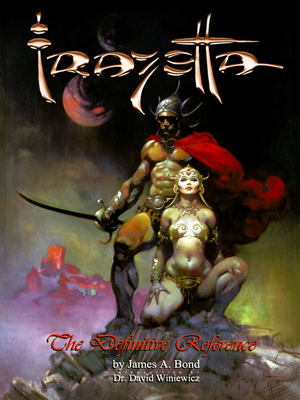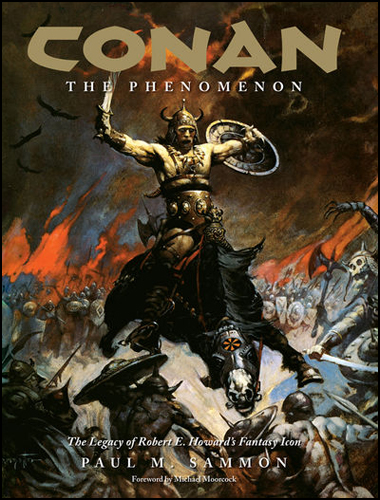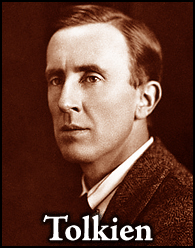Friday, July 24, 2009
posted by Deuce Richardson

July 17, 2009, East Stroudsburg PA: Eleanor ‘Ellie’ Frazetta, the
wife of celebrated artist Frank Frazetta, passed away today to be with the Lord after a courageous one-year battle with cancer.
Eleanor Kelly was born in Massachusetts and moved to New York where she married Frank in November, 1956. She acted as his business partner as well as his lifelong companion. Known for her feisty personality as well as her intuitive business acumen, she was instrumental in successfully establishing record prices for Frank’swork throughout her life.
She is survived by her husband Frank, her four children, Frank Jr.,Billy, Holly and Heidi, numerous grandchildren, and many friends.
A public memorial is planned and details will be announced
shortly. In the meantime, the family requests privacy.
Rob Pistella
Stephen Ferzoco
On behalf of the Frazetta Family
That was the announcement that went out over the internet on Friday, July 17. This is my belated tribute to Ellie. (Continue reading this post)
Monday, May 12, 2008
posted by Leo Grin

Since the late ’60s, Howard and Conan fans have praised and supported Frank Frazetta and his sterling work, and this new century is no different. In May of 2006 The Cimmerian printed a symposium on the fortieth anniversary of the classic Lancer Conan the Adventurer, which included a fascinating article on Frazetta and his legendary efforts to do artistic justice to the prose of Robert E. Howard, written by artist and scholar Anthony Avacato. Now longtime Cimmerian reader Andrew Steven has tipped me off to a new Frazetta book that he’s involved with, one that Howard and Conan fans of all stripes will want to check out.
Frazetta: The Definitive Reference is billed as the most complete summation of the fantasy master’s work ever put into print. It contains a listing for every published piece of Frazetta art, along with essays by notable Frazetta scholars, and the whole works is supplemented by over eight-hundred illustrations (four hundred in full color). The volume is set to debut in August 2008 in three separate editions: softcover ($29.99), hardcover ($39.99), and deluxe hardcover in slipcase ($59.99). You can get the standard discounts by shopping through Amazon and other mass market outlets (but you are flipping a coin as to whether you’ll get the book in acceptable condition).
Congratulations to Andrew for helping make this book as complete and accurate as can be. It’s always nice to have hardcore Howardists contributing to such things and ensuring that REH gets properly represented.
Wednesday, November 14, 2007
posted by Steve Tompkins

Bear with me for this first paragraph. Most people who are fascinated by Alexander the Great know that Mary Renault wrote an Alexandriad, a trilogy of novels about the conqueror’s life and the succession wars that raged after his death: Fire From Heaven (1969), The Persian Boy (1972), and Funeral Games (1981). But some might not be aware that Alexander first appeared in the final chapter of a fourth book, The Mask of Apollo (1966). Renault’s narrator, Nikeratos, a Greek actor who has watched, and narrowly escaped with his life from, Plato’s doomed attempt to bring an ideal city-state into being in Sicily, meets the young prince at the Macedonian court in Pella, and they discuss whether Achilles should have killed Agamemnon and what an alliance between the Achaeans and Trojans for the purpose of eastward expansion might have achieved. Once back in Athens, Nikeratos muses “He will wander through the world like a flame, like a lion, seeking, never finding, never knowing (for he will look always forward, never back) that while he was still a child the thing he seeks slipped from the world, worn out and spent.” What Renault is getting at is that time and chance have denied Alexander exposure to Plato’s poetry, leaving him only the far more prosaic Aristotle. The Mask of Apollo ends this way:
All tragedies deal with fated meetings; how else could there be a play? Fate deals its stroke; sorrow is purged, or turned to rejoicing; there is death, or triumph; there has been a meeting, and a change. No one will ever make a tragedy — and that is as well, for one could not bear it — whose grief is that the principals never met.
On page 57 of Paul M. Sammon’s Conan: The Phenomenon, Frank Frazetta is quoted (by way of frankfrazetta.com) as saying “I feel a certain sense of loss that Howard isn’t alive to appreciate what I’ve done with Conan.” A certain sense of loss; for me that loss is quite similar to Mary Renault’s even-more-unbearable form of tragedy in which the principals are divided by circumstance or chronology.
(Continue reading this post)







